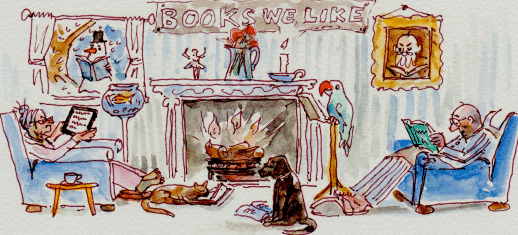|
Gould's book of fish - A novel in twelve fish |
The few facts known about Gould include his imprisonment as a transported convict in Van Diemans Land, Tasmania; that he painted fish; that he had many aliases and that he drowned in an attempted escape on February 29, 1831. In this weird and surrealistic book, Gould fantasises with much seductive black humour on his fate, telling us much more than about the living hell of a doomed man in a 19th C penal colony.
(James Baker - bwl 17 February 2003) |
|
|
The Narrow Road to the Deep North |
The horrors of the Burma Railway are unflinchingly related, as Dorrigo Evans, surgeon and senior officer, tries to save his men. However it is more about the deep shadow this casts on his life and that of others who survived. Meanwhile the Japanese Commander tenaciously avoids capture as a war criminal. Another important thread is the love story that continues throughout the book. A complex book that is difficult to define in a few words.
(Christine Miller - bwl 75 Winter 2015) |
|
|
The Narrow Road to the Deep North |
Flanagan graphically portrays the horrors of Australian POWs in WWII, building a railway through the jungle for the Japanese. Some of these descriptions are disturbing. The title refers to a journey taken by the Japanese Haiku poet Basho to the north of Japan in the 17th century. This novel shows a different and terrible Japanese mind. As the story unfolds, the emphasis is on the Aussies, but we are asked to reflect on post-war guilt by the Japanese, and recovery by the prisoners themselves. It is humankind at its harshest.
(Herb Roselle - bwl 99 Winter 2021) |
|
|
The Sound of One Hand Clapping |
Set in Tasmania, from the atmospheric beginning when three year old Sonja's mother walks out into a blizzard, this is a real page turner. As she grows up, in order to come to terms with themselves and each other, she and her father must confront the horrors witnessed by the family in Nazi occupied Slovenia.
(Jenny Baker - bwl 4 July 2000) |
|
|
Wanting |
This imaginative portrayal of episodes in the lives of two prominent 19th C Englishmen - Charles Dickens and Sir John Franklin - at first in parallel then intertwined, is moving, and ultimately compassionate. The collateral damage to everyone in the spheres of influence of both famous men, at different times adored and reviled, is revealed to be tragic, but not entirely surprising. After persevering with the first expositional chapters, I couldn't put it down. Worth the read!
(Margaret Teh - bwl 83 Winter 2017) |
|

